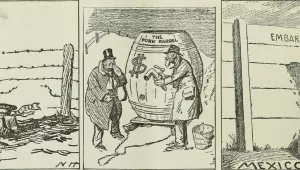Note
Pierpaolo Barbieri wrote this letter to the editor in response to Wolfgang Münchau's January 21, 2013, column, "Why Monti is Not the Right Man to Lead Italy," which appeared in the Financial Times.
From Mr Pierpaolo Barbieri.
Sir, Wolfgang Münchau's column "Why Monti is not the right man to lead Italy" (January 21) utterly confuses the two years of eurozone crisis resolution. Italian yields began their downward path not with the announcement of outright monetary transactions (OMTs) by European Central Bank president Mario Draghi, but rather with Mr Monti's replacement of Silvio Berlusconi as premier in November 2011. Furthermore, at the febrile EU summit last June, it was not Mariano Rajoy, the Spanish prime minister, but Mr Monti who achieved German support for a full banking union and eventual federalised bank recapitalisations from the European Stability Mechanism. These commitments arguably "unlocked" ECB support in the form of OMTs.
To argue that "Mr Monti promised reform and ended up raising taxes" is to grossly misunderstand an imperfect but positive labour reform, pension changes and progress on competitiveness, tax evasion and corruption. Mr Monti therefore deserves better than a historically ill-informed comparison with the tragic Weimar chancellor who gave way to Adolf Hitler.
Pierpaolo Barbieri
Ernest May Fellow, Harvard Kennedy School of Government, Cambridge, MA, US
Barbieri, Pierpaolo. “Italian Yields Began to Fall as Soon as Berlusconi was Ousted.” Financial Times, January 22, 2013




